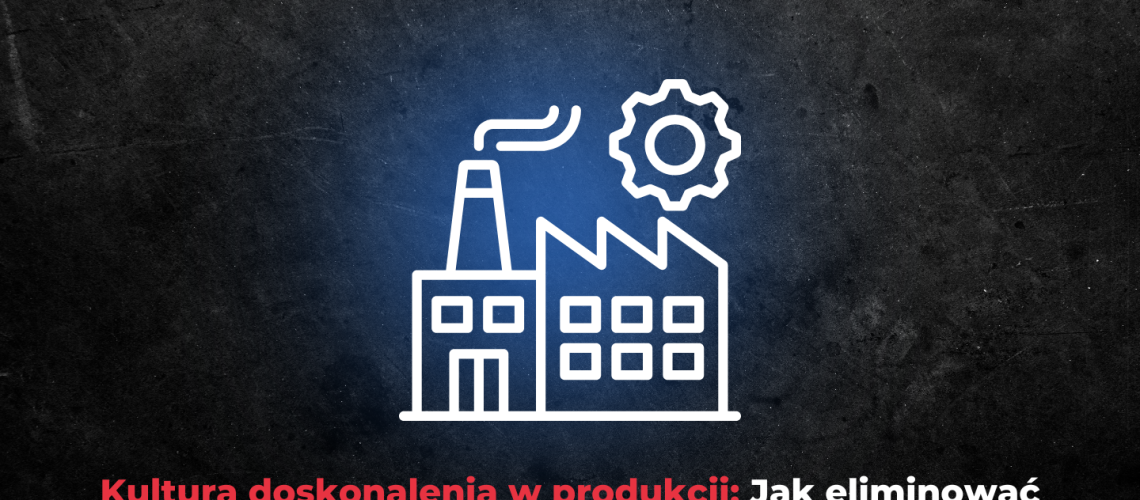In manufacturing, where process optimization is crucial, eliminating waste is one of the most important organizational goals. However, it is worth remembering that effective waste elimination is not possible without the involvement of the entire team. The ideas of employees who interact with production processes on a daily basis are an invaluable source of knowledge about possible improvements. A culture of improvement, i.e. a constant drive to improve processes, is the foundation of efficient production. In this article, we will discuss how, with the help of team ideas and tools such as Sherlock Waste, you can eliminate waste in production, supporting the growth of your organization.
Table of Contents:
- The importance of a culture of improvement in manufacturing.
- Types of waste in production.
- How do the team's ideas help eliminate waste?
- Sherlock Waste 's role in eliminating waste.
- Strategies for engaging the team in the improvement process.
- Benefits of eliminating waste through team ideas.
- Summary.
1 The importance of a culture of improvement in manufacturing
A culture of improvement is essential for manufacturing companies that strive to maintain high efficiency and competitiveness. It involves continuous improvement of processes, products and work methods, resulting in reduced costs, improved quality and increased productivity. In companies that emphasize improvement, a key element is the involvement of employees at all levels of the organization. A culture of improvement allows every employee to be part of the innovation process, helping to eliminate unnecessary costs and waste in production.
2 Types of waste in production
Waste in production can be divided into several main types that negatively affect process efficiency:
- Time wastage: Associated with delays in production processes, unnecessary interruptions, waiting for materials, machinery or decisions.
- Waste of materials: Improper management of raw materials, waste generated during production, suboptimal use of materials.
- Energy wastage: Improper management of energy consumption, excessive use of machines or processes that require more energy than necessary.
- Wastage of movement: Unfavorable distribution of workstations, causing employees to make unnecessary movements instead of working efficiently.
- Wasteful overproduction: Producing more than is needed, resulting in additional costs for storage, transportation and circulation of materials.
Eliminating these types of waste is key to achieving high production efficiency and reducing costs.
3. How do the team's ideas help eliminate waste?
The team's ideas are the foundation in eliminating waste. Employees who work in production are most familiar with the daily challenges of waste. Thanks to their experience and involvement, it is possible to spot inefficiencies that often escape managers and process managers.
- Process optimization ideas: The production team can propose new, more efficient work methods that contribute to saving time and resources.
- Identifying sources of waste: Employees, noticing problems in their daily work, can identify areas where materials, energy or time are being wasted.
- Suggestions for better resource management: The team can propose changes in work organization to better manage materials, minimize waste and optimize energy use.
- Quality improvement ideas: By submitting process improvement ideas, the team can help eliminate production errors that lead to wasted resources.
4 The role of Sherlock Waste in eliminating waste
Sherlock Waste is a tool that supports the process of eliminating waste by allowing employees to easily report ideas, defects and processes that need improvement. With this platform, companies can quickly identify problems and respond to them in an organized manner.
- Reporting problems and improvements: Employees can easily and quickly submit ideas for improving production processes, eliminating material waste or improving quality.
- Data analysis: Sherlock Waste allows you to collect data on submitted ideas, allowing you to accurately analyze which areas are generating the most waste and need the most improvement.
- Transparency of the process: With the platform, managers can easily track the progress of implemented ideas and evaluate the results of their implementation. This provides more motivation to submit new ideas when employees see that their suggestions are taken seriously.
5. strategies for engaging the team in the improvement process
For the process of eliminating waste to be effective, it is important to involve the entire team in the culture of improvement. Here are some strategies to help engage employees:
- Incentives and rewards: Introduce a reward system for employees whose ideas will contribute to eliminating waste in production.
- Training and workshops: Regular training helps employees develop creative thinking and problem-solving skills, which has a positive impact on their engagement.
- Interdepartmental collaboration: Create platforms for exchanging ideas between production departments, allowing them to share experiences and innovate.
- Feedback and Recognition: It is important that after implementing ideas, employees receive feedback on the effects of their actions, which motivates them to continue working on improvements.
6. benefits of eliminating waste through team ideas
Eliminating waste with the support of the team brings a number of benefits:
- Cost reduction: Savings from process optimization, reduced material waste and improved labor efficiency.
- Quality improvement: Reduce errors and defects in production processes, which affects product quality and customer satisfaction.
- Increased employee engagement: Employees who see that their ideas have a real impact on the organization feel more motivated and engaged in their work.
- Improved work organization: Improved processes, better management of time and materials, which increases production efficiency.
7 Summary
A culture of improvement in manufacturing based on team involvement and submitted ideas is key to eliminating waste. Employees who are empowered to contribute their ideas can contribute to significant improvements in processes, quality and labor efficiency. Sherlock Waste is a tool that supports companies in creating this culture of improvement by enabling easy submission and implementation of ideas. With it, organizations can effectively eliminate waste and increase their competitiveness in the market.
👉 Schedule a meeting now and start a revolution of innovation in your organization!






